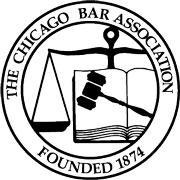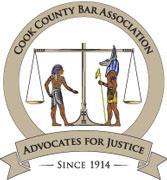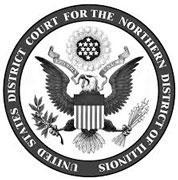Recent Blog Posts
Are Injuries Worse When the Driver is Drunk and Speeding?
 A recent crash on the Kennedy Expressway left a victim fighting for his life. Another driver was reportedly traveling at 126 mph before hitting the victim’s car. That impact sent the struck car into a spin, resulting in another collision with a box truck and trapping the victim. According to reports, the speeding driver’s car contained an open wine bottle, with beer in the trunk. A judge detained that driver as a safety risk.
A recent crash on the Kennedy Expressway left a victim fighting for his life. Another driver was reportedly traveling at 126 mph before hitting the victim’s car. That impact sent the struck car into a spin, resulting in another collision with a box truck and trapping the victim. According to reports, the speeding driver’s car contained an open wine bottle, with beer in the trunk. A judge detained that driver as a safety risk.
Separately, excessive speed and drunk driving are dangerous and negligent behaviors. Combined, they can be deadly. If you are injured in a car accident caused by a negligent driver, our Hyde Park, IL personal injury attorney can help you pursue the compensation you deserve.
Can I Sue If I Was Not Wearing a Seatbelt?
 With a few exceptions, Illinois law requires most drivers and passengers to use seatbelts while traveling in a motor vehicle. However, in practice, many people choose not to use these safety devices. If they are involved in a collision, their chances of suffering more severe injuries are higher.
With a few exceptions, Illinois law requires most drivers and passengers to use seatbelts while traveling in a motor vehicle. However, in practice, many people choose not to use these safety devices. If they are involved in a collision, their chances of suffering more severe injuries are higher.
Does not wearing a seatbelt disqualify you from seeking compensation for your damages? What is contributory fault? If you sustain injuries in a truck or car accident, a dedicated South Chicago, IL personal injury lawyer can fight to help you collect the highest available payout.
Does Wearing Seatbelts Really Reduce Risks?
Whether you like using a seatbelt or not, the following facts indicate that safety belts do protect users:
What Are Top Causes of Truck Accidents, and Who Is Liable?
 With so many freight hubs in the area and as a major junction for cross-country travel routes, Chicago sees a lot of truck traffic daily. Unfortunately, Chicagoland also frequently sees truck accidents that cause traffic delays, injuries, and fatalities. Many times, truck drivers escape with minor wounds while other motorists suffer catastrophic injuries.
With so many freight hubs in the area and as a major junction for cross-country travel routes, Chicago sees a lot of truck traffic daily. Unfortunately, Chicagoland also frequently sees truck accidents that cause traffic delays, injuries, and fatalities. Many times, truck drivers escape with minor wounds while other motorists suffer catastrophic injuries.
Why do truck accidents happen? Who pays your compensation claim if you are injured in a truck crash? Partner with an experienced Hyde Park, IL personal injury lawyer to maximize your compensation.
What Are the Top Reasons for Truck Crashes?
Many accidents happen due to a combination of factors, with more than one party potentially responsible. Common causes of truck accidents include:
-
Tire blowouts or faulty brakes
Recent Chicago Traffic Fatalities and Wrongful Death Claims
 Several fatal motor vehicle crashes happened in Chicagoland during the week of Christmas, serving as a stark reminder that dangerous behaviors can kill. These collisions also caused multiple injuries. Wrongful death and survival actions may provide funds for the families of fatal victims. Although money cannot replace what a loved one meant to you, holding the at-fault party responsible can bring a sense of justice and closure. Those injured in car collisions can also seek compensation by filing a personal injury claim.
Several fatal motor vehicle crashes happened in Chicagoland during the week of Christmas, serving as a stark reminder that dangerous behaviors can kill. These collisions also caused multiple injuries. Wrongful death and survival actions may provide funds for the families of fatal victims. Although money cannot replace what a loved one meant to you, holding the at-fault party responsible can bring a sense of justice and closure. Those injured in car collisions can also seek compensation by filing a personal injury claim.
Whichever claim you intend to pursue, working with an experienced Chicago, IL lawyer dramatically increases your chance of success.
Christmas Week Accidents in Chicagoland
You might think accidents only happen to other people, but multiple families tragically learned first-hand how a crash can impact their lives:
Is Illinois Nursing Home Neglect Worse During the Holidays?
 The winter holiday season is traditionally a time for families and friends to gather and celebrate. For nursing home residents, however, feelings of isolation and sadness can be overwhelming. To make matters worse, this period can bring an increased likelihood of neglect and abuse by staff members.
The winter holiday season is traditionally a time for families and friends to gather and celebrate. For nursing home residents, however, feelings of isolation and sadness can be overwhelming. To make matters worse, this period can bring an increased likelihood of neglect and abuse by staff members.
If you believe your loved one is being abused or neglected in her nursing home, you can trust the caring Chicago, IL lawyer from Kadzai Law Group, LLC to help hold the facility and other liable parties accountable for the harm she suffered. Call now to learn more about your legal options.
Why Does Nursing Home Neglect or Abuse Happen?
At any time of year, nursing home residents are at risk for abuse and neglect. Although the Illinois Nursing Home Care Act establishes strict requirements for these long-term care facilities, the Illinois Department of Public Health takes action against several facilities for violations every quarter. Common reasons for nursing home abuse and neglect include:
Who Is Responsible If I Am Injured on a City Bus or the L?
 Many people prefer using public transportation rather than driving to work, sports events, shopping, or other destinations. In Chicagoland, PACE, the Chicago Transit Authority, and Metra operate various trains and buses that carry over 545 million passengers annually. While most trips are uneventful, some result in incidents that injure riders.
Many people prefer using public transportation rather than driving to work, sports events, shopping, or other destinations. In Chicagoland, PACE, the Chicago Transit Authority, and Metra operate various trains and buses that carry over 545 million passengers annually. While most trips are uneventful, some result in incidents that injure riders.
What kinds of incidents can injure public transportation passengers? Who is liable for paying the injured victims? Your knowledgeable Chicago attorney from Kadzai Law Group, LLC can assess your situation during a free consultation and help you determine your next steps.
What Can Cause Injuries on Illinois Public Transit?
Whether riding a bus or train, you expect to arrive at your destination safely. Various incidents can happen that leave you with injuries, such as:
What Happens If an Uninsured Driver Injures Me in Illinois?
 Car accidents happen in Chicago and throughout Illinois every day and many of these crashes cause injuries. Illinois laws require drivers to maintain auto insurance policies to cover bodily injury and property damage for accidents they cause. Unfortunately, not everyone complies.
Car accidents happen in Chicago and throughout Illinois every day and many of these crashes cause injuries. Illinois laws require drivers to maintain auto insurance policies to cover bodily injury and property damage for accidents they cause. Unfortunately, not everyone complies.
If an underinsured or uninsured motorist causes a collision that injures you, can you get a settlement? How do these claims work? A skilled lawyer from Kadzai Law Group, LLC can help you deal with the complications involved in uninsured motorist claims and help you collect the compensation you deserve.
What Are the Illinois Auto Insurance Requirements?
To operate a motor vehicle in Illinois, drivers are required by law to have at least minimum auto insurance liability coverage:
The Dangers of Drowsy, Distracted, and Drunk Driving
 Besides starting with the letter "D," drowsy, distracted, and drunk driving have another thing in common: They are all a form of dangerous and negligent human error.
Besides starting with the letter "D," drowsy, distracted, and drunk driving have another thing in common: They are all a form of dangerous and negligent human error.
If these behaviors cause an accident that injures you, you are likely entitled to compensation through a car accident or truck collision claim. Working with an experienced Illinois personal injury lawyer from Kadzai Law Group, LLC can help you maximize your settlement.
Why Are These Driving Behaviors Dangerous?
Safe driving best practices say you should entirely focus on the act of driving and be ready to react immediately to hazards. Drowsy, distracted, and drunk driving make that virtually impossible.
Nursing Home Elopement in Illinois
 Nursing homes can be a wonderful place for aging individuals to live in dignity and comfort. People take a lot of time and effort to find the right home for their loved ones, where they can receive specialized care if needed while enjoying a rich social life. Unfortunately, some nursing homes fail to provide as safe and secure an environment as you might hope. Nursing home elopement - a term that describes when elderly residents wander or leave a facility unsupervised - can pose serious risks. If your relative experienced nursing home elopement, contact a qualified Chicago, IL personal injury attorney who can review your case and guide you forward.
Nursing homes can be a wonderful place for aging individuals to live in dignity and comfort. People take a lot of time and effort to find the right home for their loved ones, where they can receive specialized care if needed while enjoying a rich social life. Unfortunately, some nursing homes fail to provide as safe and secure an environment as you might hope. Nursing home elopement - a term that describes when elderly residents wander or leave a facility unsupervised - can pose serious risks. If your relative experienced nursing home elopement, contact a qualified Chicago, IL personal injury attorney who can review your case and guide you forward.
Legal Obligation of Nursing Homes
Nursing homes have a legal responsibility to provide their residents with a safe environment and ensure there is no abuse or neglect taking place. This includes taking steps to prevent elopement, such as:
How Can Hours of Service Affect My Illinois Truck Crash Claim?
 Almost any job you can think of has a set of rules for employees to follow. Whether you work for a giant multinational corporation or a fast-food restaurant, whether you are a professional athlete or a babysitter, there are specific rules you are expected to follow. Truck drivers are no different. Handling such large vehicles that carry all sorts of cargo to various destinations comes with benefits as well as responsibilities.
Almost any job you can think of has a set of rules for employees to follow. Whether you work for a giant multinational corporation or a fast-food restaurant, whether you are a professional athlete or a babysitter, there are specific rules you are expected to follow. Truck drivers are no different. Handling such large vehicles that carry all sorts of cargo to various destinations comes with benefits as well as responsibilities.
A negligent truck driver making silly mistakes on the road could end up causing a serious and possibly even fatal accident, and there are many regulations truck drivers are required to abide by that are aimed at trying to ensure the safety of those drivers and everyone else on the road. One of these sets of rules is called “Hours of Service.” It places a limit on the number of hours a trucker is legally allowed to drive consecutively and when he must take breaks. The rationale behind these rules is that they can help prevent people who are too tired to drive safely from getting on the road. If you were injured in a truck accident, speak with a skilled Hyde Park, IL personal injury attorney who can help determine whether the hours of service were violated and fight for your maximum compensation.















